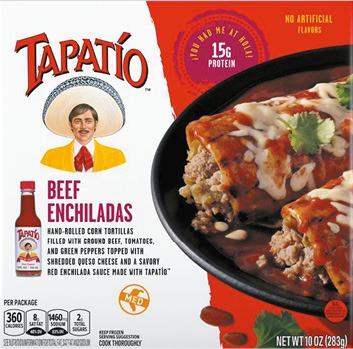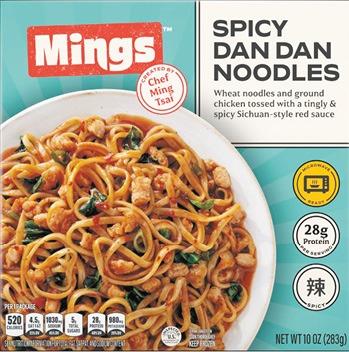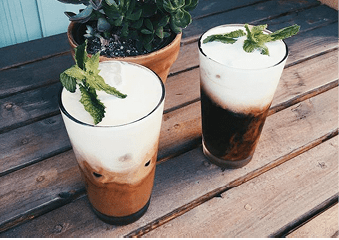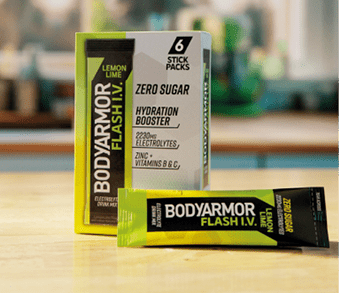Health and sustainability is the engine of this year’s F&B innovations
A sort of duality emerges from the predictions of food trends in 2025.
This article is available for reading in Trade magazin 2025/2-3.
With the easing of economic uncertainty following the pandemic, consumers can now say that their absolute priority is their own health and that of the planet, but they are also unwilling to give up pleasure when they are eating away from home.
Food for well-being
When it comes to nutrition, we have moved beyond the reality of what we call “one-fits-all” solutions, as consumers have understood that there is no single good solution: different diets work for everyone. Never before has the desire for well-being played such a dominant role in consumer choice. In addition to the efforts made for metabolic health, the ageing population of western society is also driving demand for food that supports hormonal and mental health, says Mintel in its 2025 trend forecast. The research firm advises brands to concentrate on product characteristics that emphasise essential nutrients – protein, fibre, vitamins and minerals – to meet the needs of conscious dieters and of those who want to lose weight. Eating is also about pleasure besides its functionality and consumers are searching for that joy in the food they eat. Young people are the leaders in experimentation: creative and unprejudiced about flavours, Generation Z is constantly on the lookout for TikTok- and Instagram-compatible dishes. The result is unexpected and sometimes exceptionally good flavour combinations.
Flavours without borders
According to the Tastewise report (which uses AI technology to analyse data from around 7.14 million consumers, 45 million social media posts, 6.3 million recipes and 168 million dishes from 1.1 million restaurants), the cost of living increased by 6.8% globally in the past year alone. But despite this consumers are still willing to spend on the taste experience. In the snacks market Whole Foods expects the mixing of flavours from around the world, for example savoury snacks made with international spices to create a sense of novelty among the masses.

A TikTok video can generate huge demand. A video of a simple cucumber salad, for example, was viewed by more than 50 million people, and demand soared to the point where stores ran out of cucumbers
It is no coincidence that PepsiCo has enlarged its portfolio with the acquisition of Mexico-based Siete Foods and its new lentil and tortilla chips. Nestlé has also introduced new brands in the frozen food category, focusing on Mexican and Asian cuisine. A similar trend has been identified by food innovation experts Mattson, who predict that spicy flavours and intense umami will dominate the taste of snacks, drinks and main meals in 2025.

Nestlé aims to capitalise on the rapidly growing demand for global brands

by engaging established chefs to create authentic taste experiences
Whole Foods claims texture will take centre stage this year – alongside flavour. Consumers are turning to crunchy foods such as sprouted nuts and granola made with sprouted ingredients, mushroom crisps and crunchy chickpeas, which aren’t only enjoyed as a snack but also added to main dishes. It is also becoming trendy to add piquant oils to sauces and dressings, while dried fruit is gaining attention from consumers looking for a light, airy texture.

Mint Mojito coffee is made from strong espresso with cane sugar, fresh mint leaves and milk or cream
Water reigns
Interest in functional hydrating drinks and foods grew by 12.8% in the past year, according to Tastewise, thanks growing consumer awareness: there is correlation between fluid intake and various health issues such as hormone balance (+162% year/year), menopause (+96%), muscle function (+95%) and stress relief (+73%). In order to meet consumer demand, food companies are looking for new ingredients such as Celtic sea salt and pomegranate juice. There is an abundance of electrolyte-enriched lollipops, carbonated coconut water, chlorophylls and protein water at food fairs and trade shows.

BodyArmor has entered the hydration boosters’ market with single-serve powder sticks
The renaissance of tea drinking goes beyond hydration and is also about mental relaxation. Various tea blends are increasingly popular, including spicy chai and earl grey, together with hot and cold tea lattes, London Fog and new brewing methods. Sustainability efforts are also making their way into the beverage industry: as a recent Whole Foods forecast highlights, natural and organic wines are made using regenerative farming practices, and beer and whisky brands are working with ingredients such as drought-tolerant fonio.

Vintage tea parties may replace “happy hour”
The evolution of plant-based foods
In the spirit of health and sustainability, turning towards naturalness is also reflected in the growing interest in plant-based foods, particularly those containing tasty and clean ingredients. Consumers want to buy products with a short list of ingredients that are easy to understand. Health and food safety is now a key driver of purchasing decisions. Demand is beginning to shift towards plant-based and vegan foods, which don’t just have a clean ingredient list but also offer a pleasant taste experience.

Ultralight bottle from glass – weighing around 500 grams compared to a typical 700 millilitre spirits bottle, Johnnie Walker’s hand-blown tear-drop bottle weighs just 180 grams
Symrise expects that the use of vegetables as a substitute for over-processed meats will gain momentum. Plus in the future there will be more options offering a combination of meat and vegetable ingredients. New technological opportunities – especially AI use – are revolutionising food and beverage (F&B) innovation.

Increasing attention is being paid to foods made with seafood and freshwater greens
Data-driven research and AI are making insight generation and flavour development more efficient and versatile. Mintel and Symrise believe that AI can be particularly useful in nutritional analysis and can lead the way and inspire food innovation. F&B brands can use AI to optimise and accelerate product innovation. //
Related news
40 secure jobs, sustainable solutions – new BURGER KING® in Csepel
🎧 Hallgasd a cikket: Lejátszás Szünet Folytatás Leállítás Nyelv: Auto…
Read more >Expert: EU AI regulation is here, but Hungarian businesses will have time to prepare for the changes
🎧 Hallgasd a cikket: Lejátszás Szünet Folytatás Leállítás Nyelv: Auto…
Read more >World Rare Disease Day: advances in clinical trials and expansion of genetic diagnostics are essential for the development of precision medicine
🎧 Hallgasd a cikket: Lejátszás Szünet Folytatás Leállítás Nyelv: Auto…
Read more >Related news
(HU) Átadták a SIRHA Budapest 2026 Innovációs Termékverseny díjait
🎧 Hallgasd a cikket: Lejátszás Szünet Folytatás Leállítás Nyelv: Auto…
Read more >How does the forint exchange rate affect consumer prices?
🎧 Hallgasd a cikket: Lejátszás Szünet Folytatás Leállítás Nyelv: Auto…
Read more >HELL CITY has arrived, led by Michele Morrone
🎧 Hallgasd a cikket: Lejátszás Szünet Folytatás Leállítás Nyelv: Auto…
Read more >









